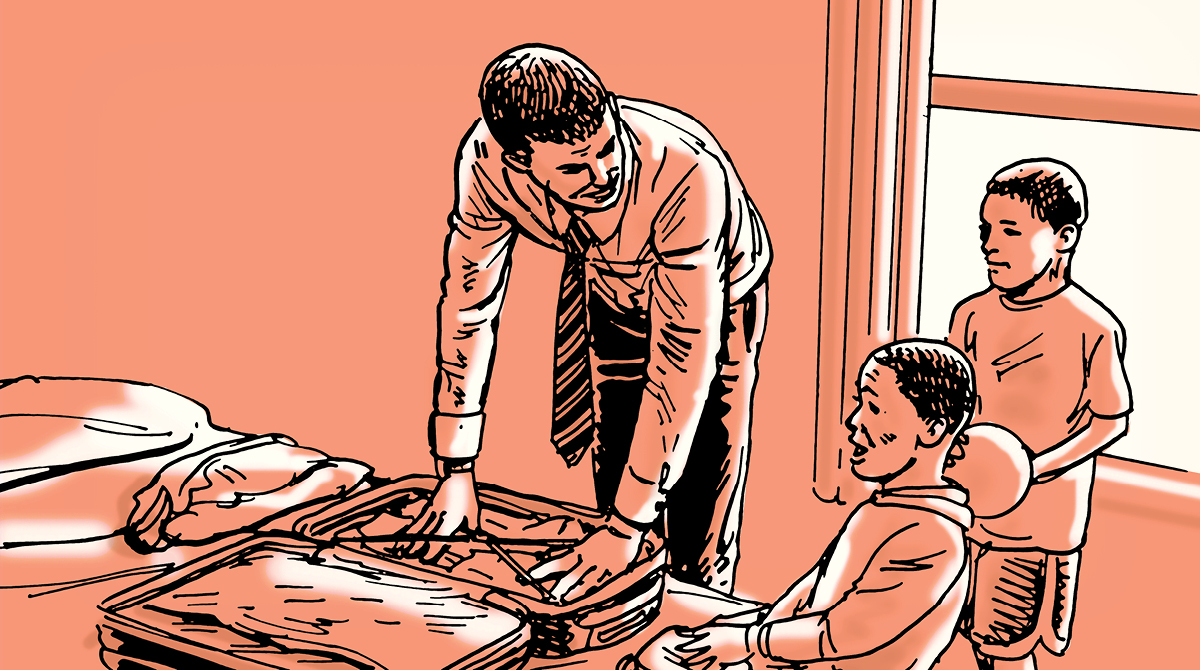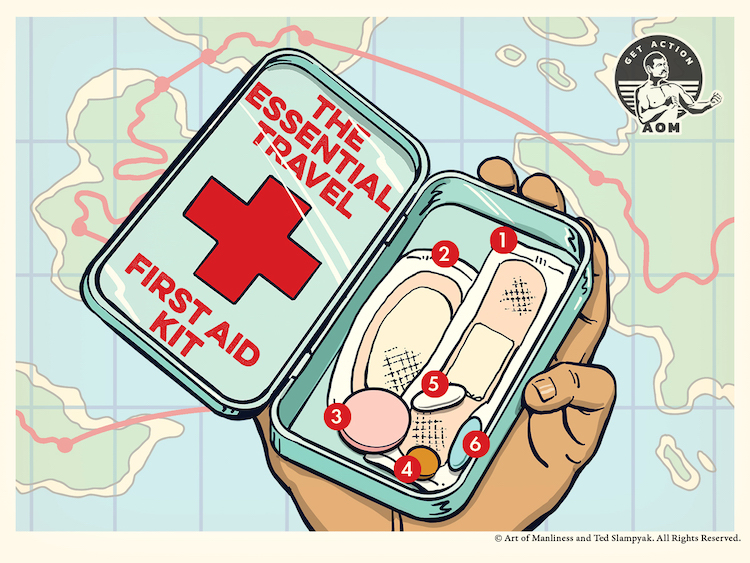
Editor’s note: This is a guest post from Matthew Kepnes.
Maybe you dream of being James Bond and cruising around the world with beautiful and dangerous women, driving fast cars, and stopping criminals. Or maybe you’d like to become a modern-day Indiana Jones, trying to solve ancient mysteries in exotic locales. Or, instead of luxury and adventure, you want to be like Russell Crowe from A Good Year, living in one place, getting to know the culture, and making friends with the locals. No matter what lifestyle you’re going for, you’re going to need a place to stay.
Accommodations are one of the biggest day-to-day expenses we have while traveling, and cutting that cost down can have the biggest impact on your budget. Sure, you can always spend a night on the train, follow the rule that the more beds in a room, the cheaper it is, or try to stay with your grandmother’s friend’s cousin to save money. But if those options don’t appeal to you, here are some unique ways to get a free place to stay.
Stay with Locals for Free
Hospitality exchange services connect travelers with locals that offer those travelers a free place to stay—no strings attached.
Sometimes it’s a bed, sometimes it’s a couch, and sometimes it’s literally just space on the ground. These sites work by having users sign up, create profiles, and connect with each other with the expectation that one day, those who will be hosted, will pay it forward and host someone else. You don’t necessarily have to host anyone in the future, but most people find the experience of being hosted rewarding and decide to do so.
There are four major hospitality exchange organizations:
- Couchsurfing (http://www.couchsurfing.com)
- Servas (http://joomla.servas.org/)
- Hospitality Club (http://www.hospitalityclub.org/)
- Global Freeloaders (http://www.globalfreeloaders.com/)
I use Couchsurfing over all the others. It has the largest membership base, the most active members, the best user interface, strong levels of verification, and the biggest range of ages and nationalities. While I love the fact I can get free accommodations, what draws me to the site over and over again is that I get to experience the local side of a city. I get taken to local parties, gatherings, restaurants, and sites that aren’t in any guidebook. I learned about Australian politics while in Australia, experienced a Danish family’s Sunday dinner in Copenhagen, and was taken to a German rock show in Munich because of the people I met Couchsurfing.
People are often scared to use these services because they are concerned about safety. I understand that concern. There you are, in a new city, with all your stuff…in a stranger’s home. What if they try to murder you in your sleep? What if they steal your things? What if they are rude or smell? However, I’ve found that people who are willing to open their homes to strangers tend to be very open-minded and friendly people, and are also usually former travelers themselves. They know what you are going through. They want to help. They want to show you their city and what makes it special.
When I am looking for a Couchsurfing host, I use the following criteria to ensure that my host is a legitimate person:
- There has to be a picture with the profile so I can see that this is a real person and they are interested in showing their face.
- The profile has to be filled out completely as it shows they are interested and involved. Most people aren’t going to spend the time to fill this out if they aren’t going to be comfortable with strangers in their home.
- They should have reviews from other users. If other people have stayed with or have at least traveled with the host and had a good experience, you and your stuff will probably be fine. You might not get along with the host but at least you know they aren’t a creep. The more positive reviews, the better. I’m willing to let other things slide about the profile if a lot of people have vouched for my potential host.
- Though not necessary, I do like it when people have gotten verified by Couchsurfing. Knowing that a person has been verified reduces the likelihood that they are going to be a crazy psycho killer. However, if someone hasn’t gone through the verification process but has a lot of positive reviews, that’s O.K. with me.
After I’ve found a host, I send an e-mail letting them know information about me, why I think we would have a good time together, and the dates I would be in the city. I tend to e-mail about 5 to 10 potential hosts to compensate for the fact that some people just might not respond or will say no.
Once you use a hospitality exchange for the first time, you see that there was really nothing to fear after all.
Work for Your Accommodations
World Wide Opportunities on Organic Farms (http://www.wwoof.org/) or WWOOFing, is a service that matches people looking for work with farms that are looking for labor. It’s more of a loose affiliation of like-minded groups using the same name than one large international organization. In order to become a WWOOFer, you will need to sign up for the national organization in the country you want to visit. Annual membership usually costs around $30 USD per country. There are currently 99 countries that participate in the WWOOFING program worldwide.
You don’t need any previous experience in farming to do this—just a desire to work. Most WWOOFers we have met have no experience at all—they are simply interested in learning more about farming and food.
Moreover, you don’t just get your hands dirty on the farm; you do a number of other chores as well. Although the WWOOF acronym implies farm work, you can do a lot of things besides tending crops—everything from cooking, to cleaning lodges, to promotional work, and anything in-between.
If you don’t want to join WWOOFing, but still want to work on a farm, the best way around membership is to simply show up in an area you want to work in, find a hostel, and ask about nearby farms that take volunteers. Since most WWOOFers are travelers, hostels in regions popular with WWOOFing keep track of which farms take volunteers.
House Sitting
House sitting is exactly like it sounds—while someone else is on holiday, you watch their house and take care of any pets they have while they are gone. The biggest house sitting websites are:
- House Carers (http://www.housecarers.com)
- Mind My House (http://www.mindmyhouse.com)
- The Caretaker Gazette (http://www.caretaker.org/)
Potential house sitters pay a $20-50 USD registration fee on the sites that list houses and create a profile and fill in security information. You’re then able to search for houses in your destination. After you and the owner have come to an agreement, you sign a legal form with the terms and conditions you both agree to (this form protects all parties in case something goes wrong. After all, you don’t want someone to say you stole something when you didn’t, or have the homeowner be unable to get back damages because you broke his window).
If you are going to house sit, it is important to make sure you do your research to ensure the home is in the location you want and your responsibilities are spelled out. Otherwise, you could end up as someone’s dog walker, gardener, and cleaner without knowing it. You don’t want to get used for free labor. That is why the legal contract is so important—it spells out your responsibility.
House sitting commitments tend to be long term (i.e., a month or more) and are suited for travelers who want to stay longer-term in one specific place. If you want to spend two or three months in a place without having to pay for a hotel every night, a house sitting gig might be just the thing for you.
House Swap
This works best for those who own a home. Home swaps are just like they sound: for a set amount of time, you swap homes with a family from another country. They come to live in your home; you go to live in theirs. This was made famous in the Cameron Diaz movie The Holiday. These programs have been around for a long time but are growing in popularity due to good marketing, movies, and word-of-mouth on the Internet.
Most people don’t do this because they worry about security—but remember that the other family is trusting you with their home too. Sites that facilitate home exchanges usually have various levels of verification and security to make sure nothing goes wrong. Families talk to each other over phone and e-mail beforehand to make sure it’s a good fit. And since most people still worry, folks send their friends over to check in so you’ll have people to talk to and get advice from!
Commitments for this can vary from a week or two to a month or two. It’s really good for people who want the comforts of home but might not be able to make the time commitment to be a house sitter.
For more information on home exchange, check out Home Exchange. This website was featured in The Holiday, which did a lot to alleviate people’s fears over home exchange and bring this travel option into the mainstream. Some of the other good websites are: Seniors Home Exchange, IHEN, and Home for Exchange.
Get Free Hotels Using Points
Not interested in any of those options? Just want to know how to stay in the W hotel for free? Well, just like airlines have massive sign-up bonuses on their credit cards, hotel cards offer the same kind of big sign-up rewards. For example here are some of the current deals:
- 50,000 points and a free night for the Chase Marriott Premier Visa.
- 50,000 points plus $200 USD in airline credits, $100 in hotel credit per two-night stay, Gold elite status, Priority Pass Select Lounge membership for the Chase Ritz-Carlton Visa.
- 25,000 points for the American Express Starwood.
- 2 Free nights for the Chase Hyatt Visa.
- 60,000- 80,000 Points for the Chase Priority Club Visa.
- 40,000 points for the Citi Hilton HHonors Visa.
Not bad huh? That’s a lot of free hotel stays. I recently signed up for the Marriott card and used it for 6 free nights in Asia. I’ve used my Citi Hilton card for free nights in New York City during Christmas. There’s nothing like staying at 5-star hotels for free.
Sidenote: If you do have a lot of frequent flier miles, those can be used to book hotel rooms. I used my American Advantage miles to book a 4-star hotel in London for a week.
And let me alleviate some concerns right now:
First, all the credit cards I’ve ever gotten have waived the yearly fee in their introductory offer. When it comes time to renew the cards and pay the fee, I simply cancel the credit card to avoid the fee. However, if you call up the card issuer and let them know you are thinking of canceling, many times you can get the fee waived for a second year or get your account switched to a non-fee card, which means you don’t have to cancel the card and you still don’t pay a fee.
While it’s true that “churning and burning,” i.e., opening and closing a lot of credit cards at once can hurt your credit, opening a few accounts over a period of time won’t kill your credit rating. I’ve been opening and closing accounts for years, and I still have a credit score close to 800 and have never been denied a card.
Your credit score will slightly dip every time there is an inquiry into your credit, whether it’s from a credit card or home loan or car loan. It’s how the system is set up. But as long as you space out your applications and maintain good credit, you won’t find any long term damages to your credit. Your credit rating rises over time as long as you maintain it; you aren’t going to have a bank officer tell you years from now, “Sorry, because you canceled three credit cards in 2012, your loan is denied.” I once canceled four credit cards in one day and what was the impact on my score? Nothing.
The two best websites to use to keep track of points and mile offers are Travel Hacking Cartel and The Points Guy. I also have a guide to picking a travel-related credit card. It focuses less on the latest point deals and more on how to determine which card is best to use over the long term.
This method will have you living the James Bond lifestyle (at least the hotel part) on Indiana Jones’s professorial salary.
No matter what your style is, there’s a way for you to save money on accommodations; as long as you are open to doing something different, you’ll find a way.
_______________________________________________
Matthew Kepnes runs the budget travel website, Nomadic Matt. In 2006, he gave up the cubicle, decided to travel the world for a year, and simply hasn’t stopped since. He has published a book on “How to Travel the World for $50 USD per Day” so others can travel cheaper and longer too. You can visit his blog for more information or subscribe to his crazy exploits on RSS.







